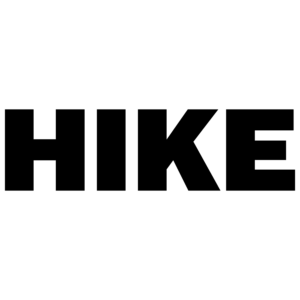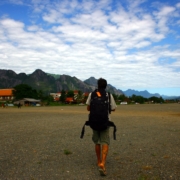Get out of your comfort zone before you get kicked out of it!

It’s a fact, our primitive brain seeks stability, predictability, and minimal energy expenditure to keep it safe, nourished, and alive. Interestingly, this same organ sometimes gives a nudge and provokes us to leave the place, to unveil the unknown, to question this much sought after stability and — oops! — including risking it in pursuit of something greater. The human mind is indeed confused, and luckily there is philosophy, therapy, meditation, running, surfing, beer, wine and friendly shoulders to alleviate our permanent conflicts. Even so, one cannot ignore the fact that whether or not the desired stability is increasingly far from the vast majority of mortals, especially us here in this Tupiniquim land in this year of 2015.
In the corporate world, hierarchical layers are being cut from all sides, accumulation of responsibilities, increasingly distant goals and the growing insecurity that your chair can rotate. In the creative and entrepreneurial universe, professionals of all ages seek to launch the next blockbuster application, create the new and most efficient productivity tool and find the long-awaited autonomy and financial independence — attitudes that we personally admire, but inserted in a context with demand exponential investment and limited capital availability. On the educational agenda, there are criticisms and provocations of changes communicated daily, coming from researchers, specialists and, notably, from civil society itself. In the vast majority, they are initiatives that aspire to take us to a scenario closer to true learning, which is very good. Even so, it only reinforces the feeling that the world and the way we live is being disrupted, having its structures dramatically shaken. Even the dreamed world of public tenders, the emblem of the search for stability and with more and more aspirants, samba to unpredictable rhythms masterfully led by tight public accounts and macroeconomic instability.
Thus, the question arises: what can be done to better navigate this galaxy of uncertainties and ambiguities? How not to despair with the expectation that we can, at any moment, be kicked far from our comfort zone?
The proactive path is to deliberately leave that comfort zone, consciously deciding and against the will of that primitive brain to provoke and challenge it. Over time, these exercises result in stronger, more defined muscles, and a body and mind ready to fight and even have fun when that kick comes. After all, a kick hurts much less in an athlete’s body, muscular and well trained, than in a skinny and sedentary body.
But, and how to take the first step out of the bubble that constitutes our routine? We risk here some logical ideas and concrete actions, which have been tested and proven in our past experiences, as managers or coaches.
1. Recognize where you are today: What industry, role, and geography do you find yourself in? What is your career progression to date and the prospect of growth in your current job? In what areas, competitors and industries do you see yourself adding value and delivering impact — or in other words, what skills from your current job can you easily apply in other contexts? Before starting any challenging sport, it is important to have a medical evaluation in order to diagnose your current physical condition and design a healthy and robust training plan. With your career, it works the same way: an honest and concrete diagnosis, based on facts of where you are today is a fundamental step to guarantee the solidity of your future roadmap.
2. Making an analogy to the financial investment strategy, diversify your portfolio of professional skills: an investor reduces his risk by investing in a varied portfolio of companies (read geography and sector). So, when one goes wrong, there’s probably another one to balance the equation. Why not do the same with your skills? It is important to know how to navigate and communicate with different functional areas (marketing, finance, operations, HR), to develop skills that allow you to easily be relocated to other areas and geographies and feel ready to quickly make things happen beyond your own bubble.
3. Challenge yourself in your spare time: But life is not just work and everything we do outside of it impacts our perception of it. The people we interact with and the activities that occupy our time away from the office influence how we see ourselves as individuals and professionals. Thus, it is worth reflecting on how we spend, or invest, our spare time: (1) sleeping, (2) in front of the TV, (3) exploring a book, a new concept, and provoking the mind to learn something different, (4 ) playing or experiencing a physically challenging sport, (5) traveling and exploring unknown territories that challenge our perception of how the world works and what is right and wrong? The list is long, and the important thing is to mix rest and challenges, aware that the brain is plastic and, if we do our part, new synapses will continue to happen.
4. Discover and explore personal passions (which may eventually turn into professional ones): It’s not easy to know what our true passions are. It is not an intellectual, rational process; on the contrary, it is something organic, practical, that happens as we explore and experience possibilities. Example: I (Alex) only discovered that running was a passion after 3 months of continuous practice 3 times a week. Once the first phase of euphoria, fatigue and adaptation had been overcome, I could see after 3 months how much my life had improved due to the exercise. Likewise, release curiosity and explore new sources of energy: crafts, volunteering, extreme sports, nature walks,
conscious eating, meditation, music, independent travel through inhospitable and little-explored places. Dedicate time and energy to exploring dormant interests and needs, opening up new avenues of possibility.
5. Experience transition possibilities and greater learning: Taking a broader step, why not invest in more radical transformations, such as preparing for a change in sector or even country? Here, the investment of time, energy and money is much greater, and therefore decisions must be weighed according to your financial and family situation. We are talking about Masters, MBAs or PhDs abroad, in top schools, which can open up previously unimaginable personal and professional possibilities. Without having to go that far and with a much more modest investment, professionals interested in changing the world through social entrepreneurship have the possibility of learning in practice by engaging with institutions that propose innovative learning models. Why not look for solutions to social challenges and problems without making radical career changes, experimenting and learning little by little? Graduate programs with this purpose, for example, can function as a career transition platform and a bridge to a world with potentially different and revealing people, values and definitions of success.
By recognizing that your professional value is not just limited to a position in sector X at company Y, possibilities increase, as well as your (emotional) dependence on what is written on your badge decreases. Many of the professionals who seek the services of a career coach only see a linear evolution for their careers. For example, a finance analyst in the consumer goods industry can see only one evolution to a management in the same area and sector. The secret lies in the intersection of skills, experiences, passions and talents, and when people can connect these dots, they unlock a universe of possibilities.
Finally, everything that challenges us and forces us to rethink the world and our role in it results in strengthening our ability to reinvent ourselves in times of crisis and face unexpected situations. It results in greater resilience, self-knowledge and self-leadership, fundamental elements of professionals who bring a positive impact to the world and, not least, live an integrated personal and professional life, full of meaning and happiness.
Article originally written by Alex Anton and Rajesh Rani, published in Harvard Business Review Brasil in June 2015.










Leave a Reply
Want to join the discussion?Feel free to contribute!